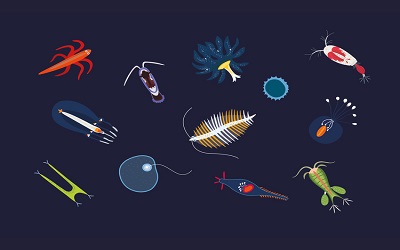PTE考生目前最大的问题之一就是练习题缺乏。除了有限的基本官方书(PLUS,Testbuilder, OG)之外,就没有题了。很多英语基础不是很扎实的同学很难找到练习材料。墨尔本文波雅思PTE培训学校专门为墨尔本,悉尼PTE考生准备了适合PTE听力阅读练习的科学60秒。各位PTE同学可以练习PTE听力中的summarise spoken text和PTE口语中的retell lecture,练习记笔记技巧和复述。废话少说,下面开始:
60秒科学:Plankton-Pee-May-Alter-Oceans-Chemistry
听力内容:
60秒科学节目(SSS)是科学美国人网站的一套广播栏目,英文名称:Scientific American – 60 Second Science,节目内容以科学报道为主,节目仅一分钟的时间,主要对当今的科学技术新发展作以简明、通俗的介绍,对于科学的发展如何影响人们的生活环境、健康状况及科学技术,提供了大量简明易懂的阐释。
Every day, the largest mass migration on the planet happens in the world’s oceans. Tiny fish, jellies and shrimpy things feed at the water’s surface by night. And by day, they hide in darker waters a few hundred meters below. “The ocean is a dangerous place, and so swimming down to depth is your best bet to avoid predators.” Daniele Bianchi, an oceanographer at the University of Washington.
Bianchi and his team tracked these ocean migrations with sonar data. And they found that the creatures descend to areas of deep water where certain species of bacteria hang out. Those bacteria snack on nutrients that float down from the surface¡ªso-called “marine snow.”
But Bianchi says the migrating creatures may also deliver food to the bacteria in the form of ammonia in the creatures’ urine. The bacteria metabolize the ammonia to produce energy and nitrogen gas effectively removing the nitrogen from the food chain, and sending it in gaseous form back into the atmosphere. Then other bacteria fix that nitrogen gas back into food chains on land and in the ocean where it eventually finds its way into amino acids. Some of which make up the proteins in us. The findings appear in the Proceedings of the National Academy of Sciences.
“There are about 20 times more of these tiny fish than there are humans on the planet.” Meaning that these miniscule creatures could play an important role in the ocean’s nitrogen cycle, Daniele says simply by taking a leak.
–Christopher Intagliata





